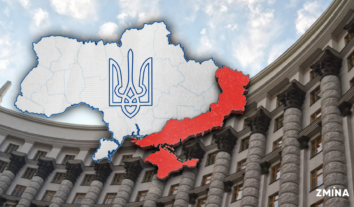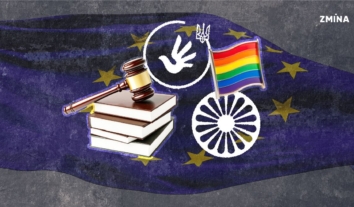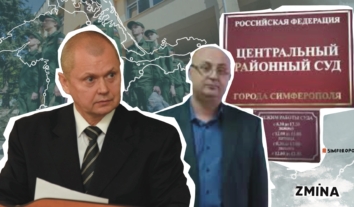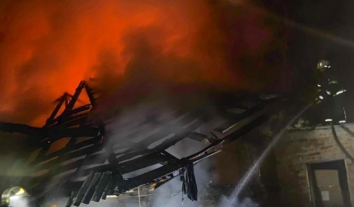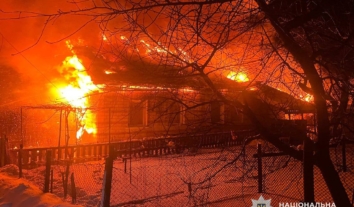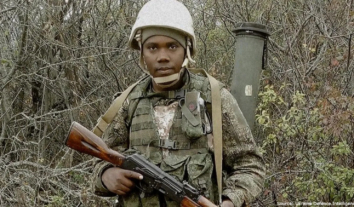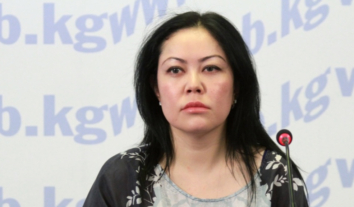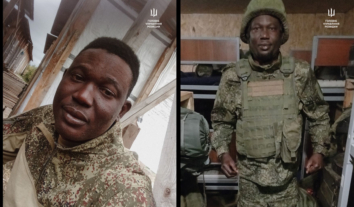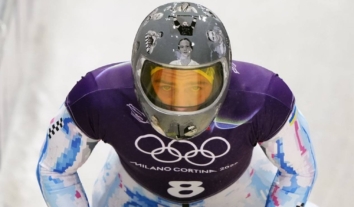Women with disabilities share about their experience with volunteering and inclusion amidst the war in Ukraine
Russia’s full-scale war against Ukraine has dramatically changed the lives of millions of people. According to the International Organization for Migration, as of 2023, more than 6 million people have fled Ukraine. Another 5 million people are internally displaced, having been forced to move to relatively safe cities within Ukraine. The United Nations Human Rights Monitoring Mission in Ukraine has confirmed that more than 30,000 Ukrainian civilians have been killed or injured in the past two years as a result of Russian aggression. The actual numbers are likely much higher.
The war has also worsened the situation of various social groups, including women with disabilities. In addition to the constant shelling, the risk of being occupied, or the inability to leave their communities due to the occupation by Russian forces, women in Ukraine face the risk of gender-based violence.
On the other hand, the problem of lack of access to genuinely vital things – shelters, humanitarian aid points, evacuation transport, as well as medicines and rehabilitation equipment – has become more acute for people with disabilities. Women with disabilities face double discrimination – both because of their gender and because of their disability. Disability rights activists emphasize the importance of intersectionality і approach and have been fighting for gender equality and inclusiveness in Ukraine, even during the war.
In this article, women with disabilities shared their experiences of living through the war, the challenges they face, particularly in the context of gender equality, and their plans for the post-war future.
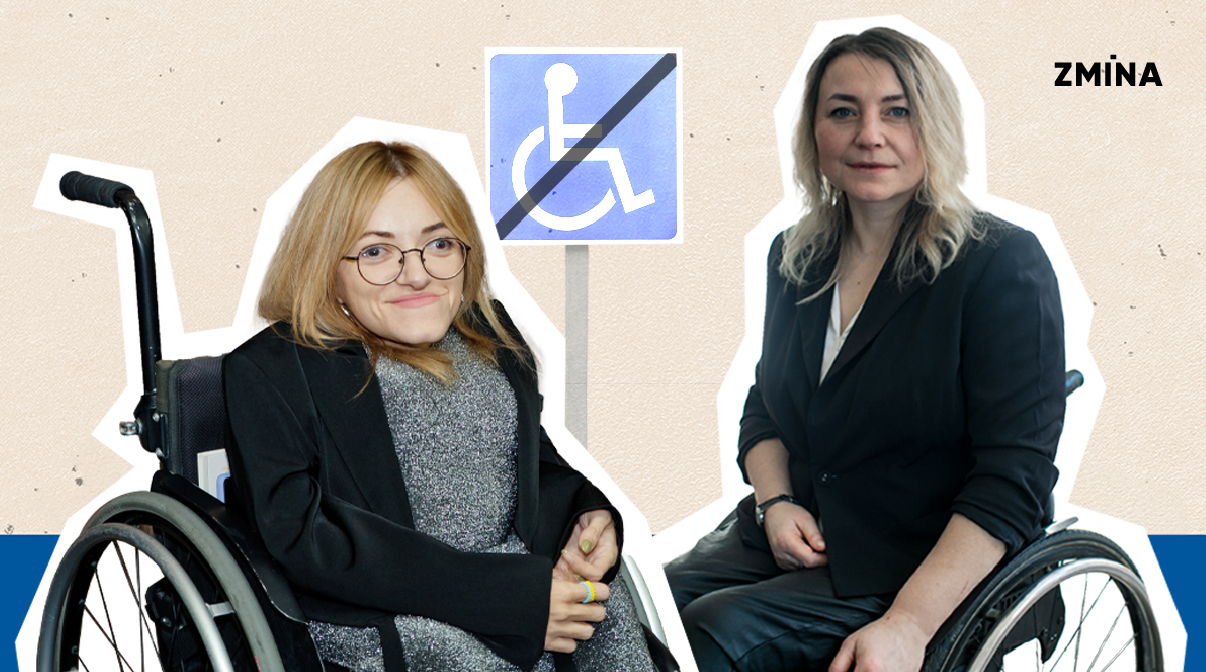
“From the very beginning of the evacuation, I intended to return at the first opportunity”: the story of Tetiana Kovalchuk
Until February 24, Tetiana lived in Kyiv with her daughter and pets. They met at the beginning of the full-scale war together in their apartment. Explosions and columns of smoke visible from the windows of the house, calls from relatives, the inability to leave the city due to constant attacks – this was their reality until they were evacuated from Kyiv.
“From February 24, 2022, it suddenly became important which side of the river you were on and which side they [Russian occupying forces] were on. We slept peacefully in our apartment with our daughter and cats. We learned about the outbreak of war from friends’ messages, calls from loved ones, and official news,” Tetiana recalls.
She tried to leave several times with her daughter and cats. On the day of their evacuation, March 2, a Russian missile hit right next to the train station. However, Tetiana and her daughter managed to leave – first to Lviv and then to Copenhagen, Denmark.
“That day, March 2, the Central Railway Station was shelled. When the siren sounded, people ran to the underground passages to escape, and that’s where the remnants of the missile came. We traveled by train according to a pre-planned route: Kyiv – Lviv – Korchova – Warsaw – Berlin – Copenhagen. The evacuation was organized by the civic organization I was working for at the time, Fight For Right,” Tetiana explains.
According to her, the reasons for leaving were not only concern for the safety of her family but also the opportunity to continue working and promptly help people with disabilities affected by the war. Tetyana volunteered and believed that she would soon return to her apartment in Kyiv, but her time abroad was getting longer and longer. Eventually, she decided to return to Ukraine.
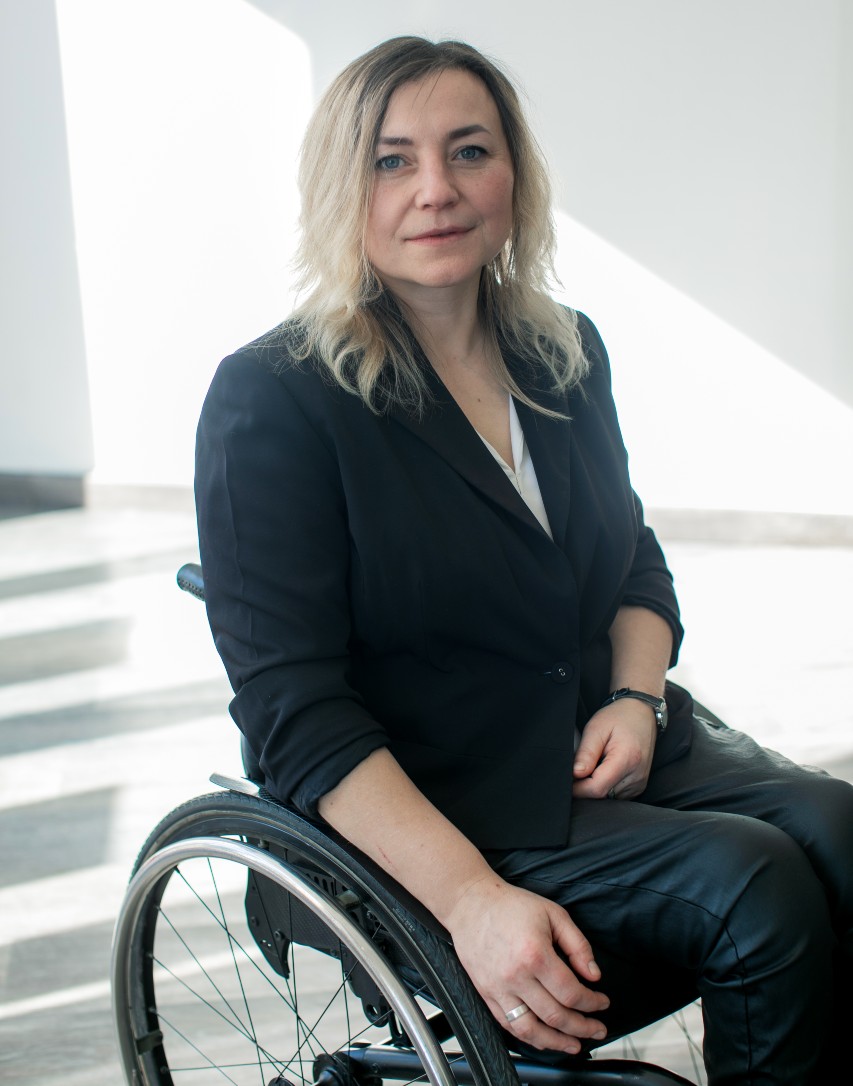 Tetiana Kovalchuk
Tetiana KovalchukAs a woman with a disability, Tetiana has faced prejudice and sometimes discrimination throughout her life.
“My disability is over 30 years old. I used to have to write a receipt of responsibility for my pregnancy and prove my right to have children. When I married a man without a disability, I experienced resistance from his family. There were difficulties with employment and accessibility to higher education. I faced discrimination regularly when using public transportation,” she says.
However, the woman is convinced that discrimination is not a reason to give up, and she defends not only her rights but also helps other people with disabilities to do so.
According to Tetiana, the problems faced by women with disabilities have only gotten worse with the war. The inaccessibility of infrastructure during the war makes it difficult, and sometimes impossible, to access vital things such as bomb shelters, evacuation transport, evacuation notices, or humanitarian aid. In addition, due to the shelling and the general deterioration of the humanitarian situation, especially in cities that are close to the war zone or under occupation, many women with disabilities find it challenging to get the most necessities, such as medicines, hygiene products, technical rehabilitation equipment, and dietary food. Despite this, Tetiana believes that all these problems can and should be solved and that Ukraine needs a future where the rights of all people are protected.
She summarizes, “Ukraine needs a policy where all people feel equal and dignified regardless of their characteristics—gender, age, religion, nationality, health status, or other.”
After the war, she wants to join other women and men in recovery and contribute to rebuilding Ukraine as a democratic and inclusive country.
“I never left my city”: the story of Alla Hinkul
Calls from relatives advising her to pack up the essentials and leave and disturbing news of shelling across the country—this was February 24, 2022, for Alla Ginkul. Ultimately, Alla and her family decided to stay in her hometown of Pervomaisk, Mykolaiv region.
“I have been in the Mykolaiv region and am still there. My motivation to stay was the fear of going into the unknown—when you don’t understand where you are going and what the conditions will be like. Since I am in a wheelchair, it is challenging for me when there is no accessibility, so my family and I decided that we would stay in the city,” she recalls.
Even though hostilities were going on nearby and the city was shelled by Russian troops every day, Alla, along with like-minded people, self-organized and began to help other people with disabilities with the most necessities.
“About a month later, we got together with my friend, who also uses a wheelchair, and the group “We Care.” We asked people with disabilities what kind of help they needed – medicines, food, etc. We tried to help people, found donors and organizations that provided humanitarian aid, and helped our local people with disabilities,” explains Alla.
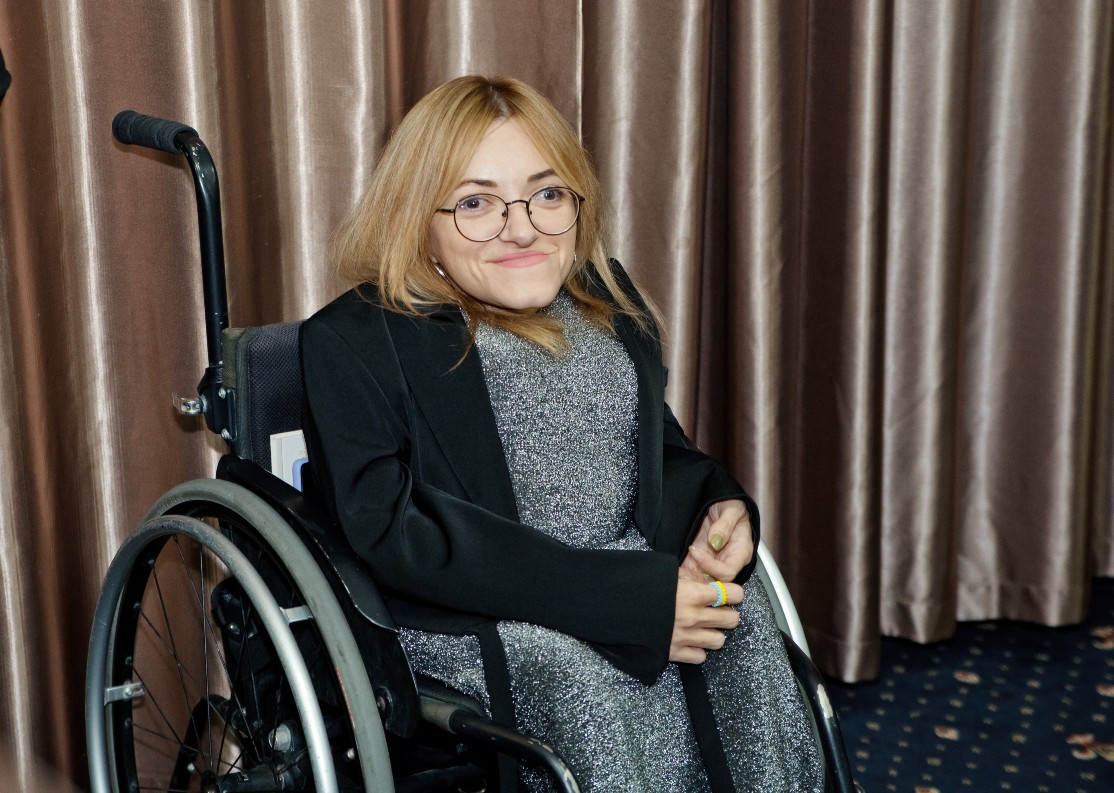 Alla Hinkul
Alla HinkulAccording to her, a big problem faced not only by women but by all people with disabilities in Ukraine is the lack of accessibility. In the context of the war, this problem has only worsened. It has become a matter of being able to get shelter or protection during shelling, as shelters are often inaccessible to people with disabilities. On the other hand, stereotypes about women with disabilities are still widespread in society.
“Most people think that if you have a disability and you are a woman, you cannot defend your rights, work, study, or give birth,” says Alla.
However, the woman is trying to counteract stereotypes and defend the rights of people with disabilities by her example. She is also convinced that Ukraine needs gender equality and a change in attitudes toward women.
“For me, being a strong woman means not giving up, going for your goal, not listening to others, and just doing what you like, what you’re good at, and what you think is right,” Alla summarizes.
After Ukraine’s victory in the war, she wants to contribute to the country’s reconstruction and help the military and people affected by the war return to peaceful life.
Ukraine still has a long way to go to truly overcome stereotypes and guarantee equal rights and opportunities for women and people with disabilities. However, today, women with disabilities are not only breaking down stereotypes and standing up for their rights by example but also uniting and helping other people with disabilities during the war. In the future, Ukraine will face a long process of post-war recovery, so women are convinced that it is essential to advocate for equality and inclusion to rebuild the country after the horrors of war.
To receive free legal and psychological counseling from Fight For Right, please call the hotline at 0 800 30 66 33 or email help@ffr.org.ua and provide your full name, age, city where you currently live, contact number, and a brief description of your life situation and needs.
This publication was prepared within the framework of the project “Supporting Women with Disabilities during the Russian War in Ukraine” and is funded by the Kvinna till Kvinna Foundation. Kvinna till Kvinna Foundation does not necessarily agree with the views expressed.


